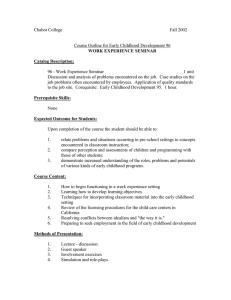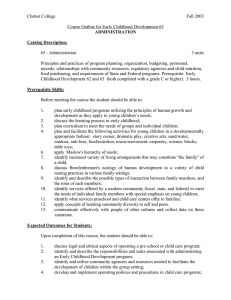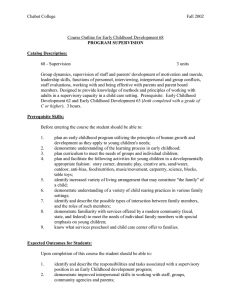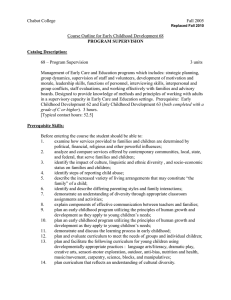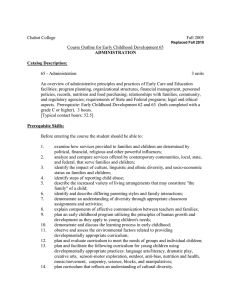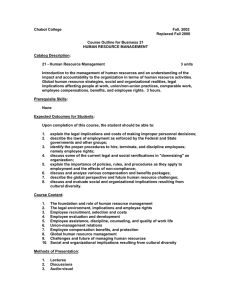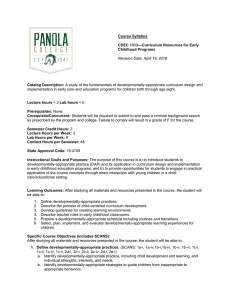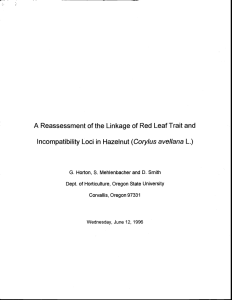Chabot College Fall 2003 Course Outline for Early Childhood Development 78
advertisement
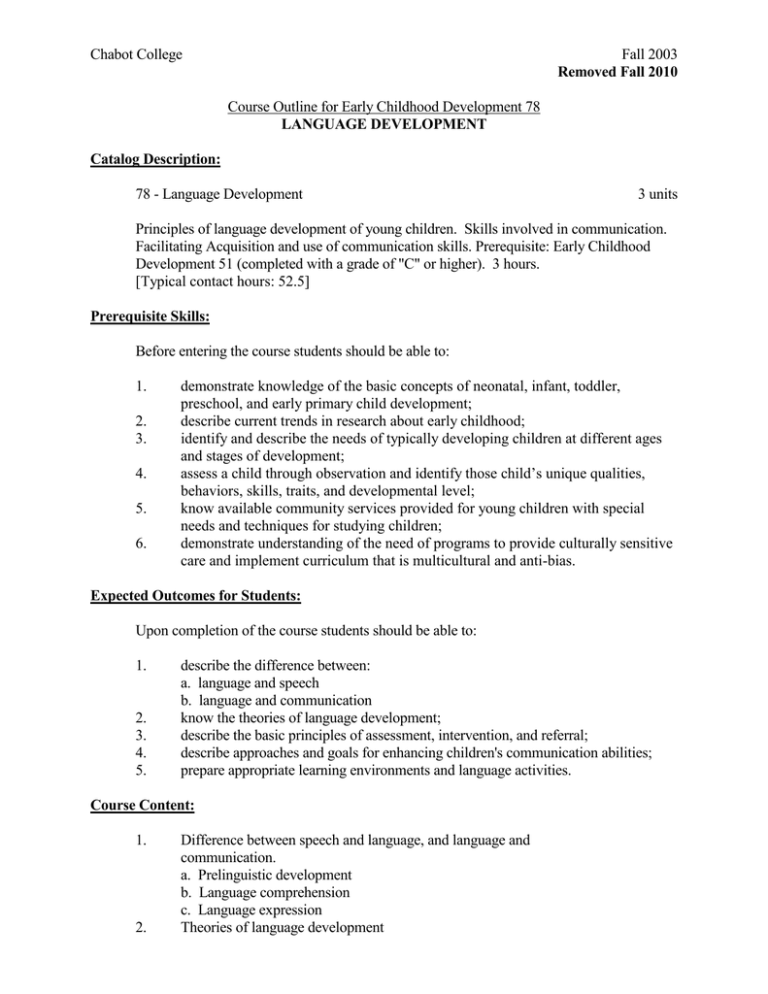
Chabot College Fall 2003 Removed Fall 2010 Course Outline for Early Childhood Development 78 LANGUAGE DEVELOPMENT Catalog Description: 78 - Language Development 3 units Principles of language development of young children. Skills involved in communication. Facilitating Acquisition and use of communication skills. Prerequisite: Early Childhood Development 51 (completed with a grade of "C" or higher). 3 hours. [Typical contact hours: 52.5] Prerequisite Skills: Before entering the course students should be able to: 1. 2. 3. 4. 5. 6. demonstrate knowledge of the basic concepts of neonatal, infant, toddler, preschool, and early primary child development; describe current trends in research about early childhood; identify and describe the needs of typically developing children at different ages and stages of development; assess a child through observation and identify those child’s unique qualities, behaviors, skills, traits, and developmental level; know available community services provided for young children with special needs and techniques for studying children; demonstrate understanding of the need of programs to provide culturally sensitive care and implement curriculum that is multicultural and anti-bias. Expected Outcomes for Students: Upon completion of the course students should be able to: 1. 2. 3. 4. 5. describe the difference between: a. language and speech b. language and communication know the theories of language development; describe the basic principles of assessment, intervention, and referral; describe approaches and goals for enhancing children's communication abilities; prepare appropriate learning environments and language activities. Course Content: 1. 2. Difference between speech and language, and language and communication. a. Prelinguistic development b. Language comprehension c. Language expression Theories of language development Chabot College Course Outline for ECD 78 Fall 2003 Page 2 Course Content (Cont’d): 3. 4. 5. Introduction to early identification of socio-communicative problems. a. Informal assessments b. formal assessments c. Referral and assessments process Designing speech, language and communication activities a. Pre-speech activities, chewing, eating, auditory and visual activities b. Parallel talking c. Expressive, receptive activities d. Techniques of storytelling, book selection, language based activities Design appropriate learning environments. Methods of Presentation: 1. 2. 3. 4. Lectures, discussion, class activities Supplemental reading handouts Audio-visual materials Resource speaker Assignments and Methods of Evaluating Student Progress: 1. 2. Typical assignments: a. Group presentations on stages of language development b. Journal entries assessing children’s language development c. Develop speech, language and communication activities Methods of evaluating student progress a. Written assignments b. Group presentations c. Exams d. Final exam Textbook(s) (typical): Early Childhood Experiences in Language Arts: Emerging Literacy.. Jeanne M. Machado, Redleaf Press, 2001 or latest edition. Emergent Literacy and Dramatic Play in Early Education. Janie I. Davidson, Redleaf Press, 2001 or latest edition. Playing with Print: Fostering Emergent Literacy. Carol Ann Bloom, Redleaf Press, 2001 or latest edition. Special Student Materials: None. tf :Doc/ECD78 Revised 10-23-02
